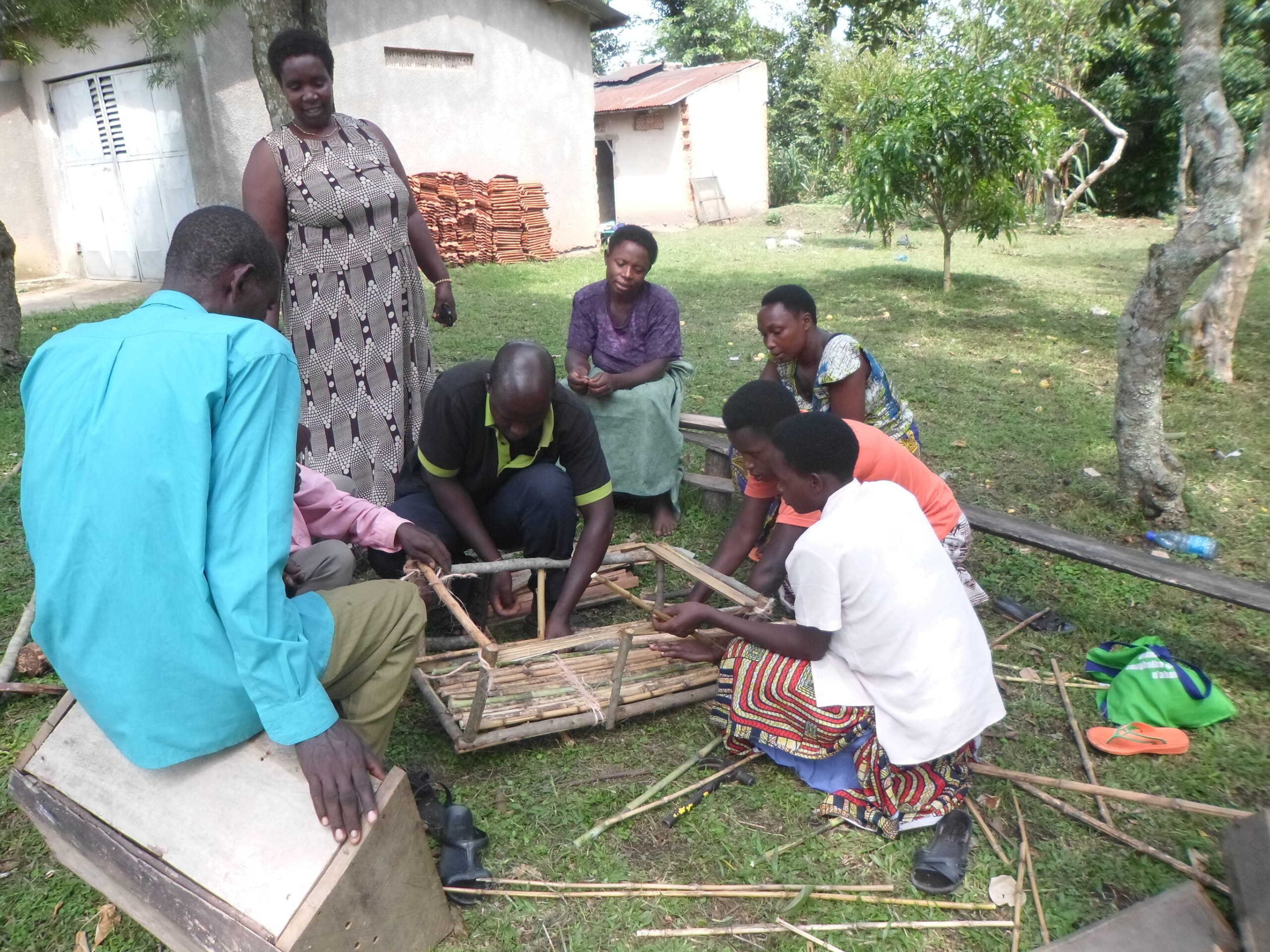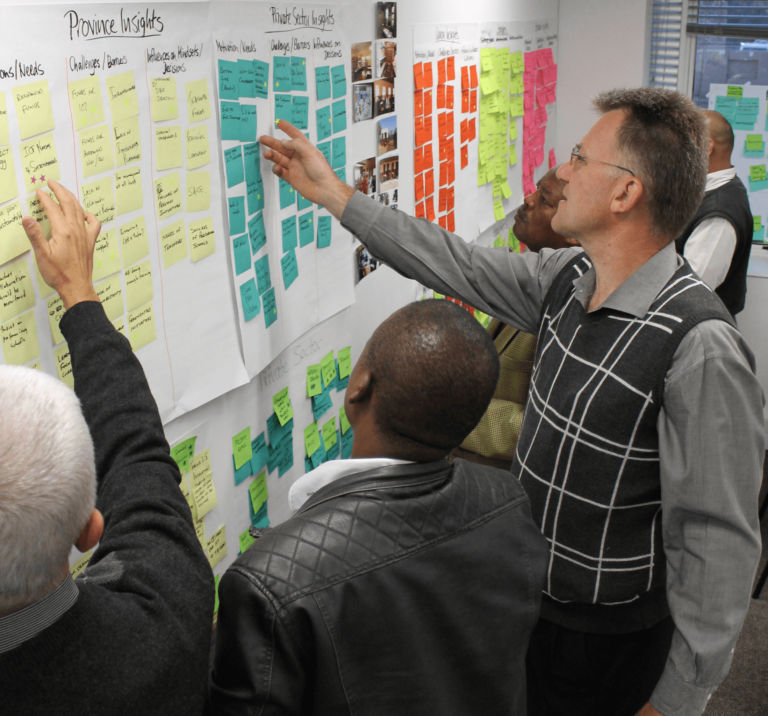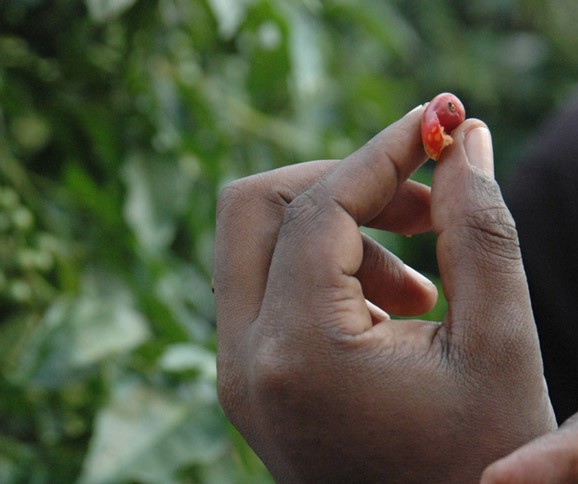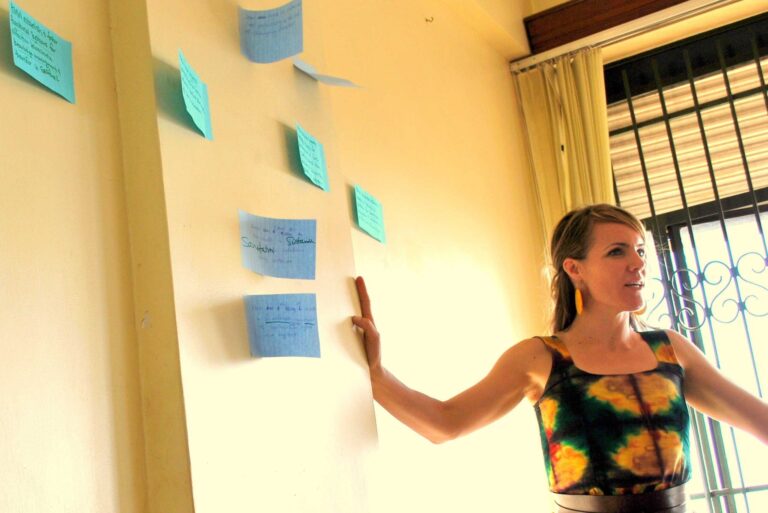LINK Finalists Launch Bee Farming Project in Uganda

Energized to tackle poverty in the Kamwenge district of Uganda, LINK Finalists Dr. Fredrick Tumwine and Dr. Frank Mugagga of Makerere University joined team members Jeniffer Tumwine of Kyabanswa Rural Integrated Farming Systems (KRIFS) and Mr. George Tunanukye of Bee Keepers Cooperative Savings and Credit Society (KABECOS) in Kyabanswa Village in mid-August. With approximately 65% of the Ugandan population living on less than $2 a day, effective poverty reduction mechanisms are critical to national economic development. The LINK Finalist team is motivated to leverage innovative bee farming techniques to raise household incomes in the Kamwenge district, which features one of the highest poverty rates in Uganda. As bee farming enterprises represent a lucrative and relatively low-cost venture for generating income, the LINK Finalist team hopes to elicit enthusiasm and openness to innovative and integrative approaches to poverty reduction among community members.
During their three-day visit to Kyabanswa Village, the LINK Finalist team members collected previously distributed surveys to gain a deeper understanding of the socioeconomic landscape of the Kamwenge District. This information will aid the team in anticipating challenges and customizing solutions to the needs of the community. Team members also engaged in community outreach to get a better sense of community interest in bee farming and to solicit feedback on how to make bee farming more appealing.
Training in Hive Making: In the picture shown above, enthusiastic community members learned how to construct hives from locally available and low-cost materials. Jeniffer Tumwine, KRIFS Chairperson and LINK Finalist team member, lead this exercise using reeds, sisal, and soft wood, all of which were secured from nearby woodlots. Utilizing affordable local resources to make hives will be a great way to keep costs low and to develop specialized skills among community members.
Engaging in Community Outreach: Determined to better understand public attitudes towards bee farming, the LINK Finalist team attended the community church to share information about their project and how members of the congregation could get involved. They solicited input on the barriers to bee farming, and suggestions on how this venture could be made more attractive. This dialogue is a critical step to program design, as the LINK Finalist team will able to launch a program that speaks directly to the preferences of the community. Dr. Tumwine and Dr. Mugagga also connected with Rev. Fr. Vincent Agutamba, a local priest who happily agreed to disseminate information about their project within his congregation as well.
Connecting with Local Bee Farmers: Led by LINK Finalist team member, Mr. George Tunanukye, Bee Keepers Cooperative Savings and Credit Society (KABECOS) is a promising example of how bee farming can sustainably generate income for farming families of the Kamwenge district. The LINK team spent a day with KABECOS perusing products on sale, visiting demonstration apiary sites, and connecting with KABECOS bee farmers. KABECOS may serve as a foundational model upon which the LINK team will expand and improve as they engage with the community and solidify their strategic path forward.

Over the coming months, the LINK Finalist team members will analyze and utilize community feedback and survey results to inform the strategic design of their poverty reduction project. They hope to significantly improve the financial stability of farming families in Uganda, starting in the Kamwenge District. In early 2015, the GKI team will meet with the LINK Finalist team once again to rigorously assess and improve project implementation plans. GKI looks forward to future engagement with the LINK Finalist team and is excited to see the results of their hard work.








